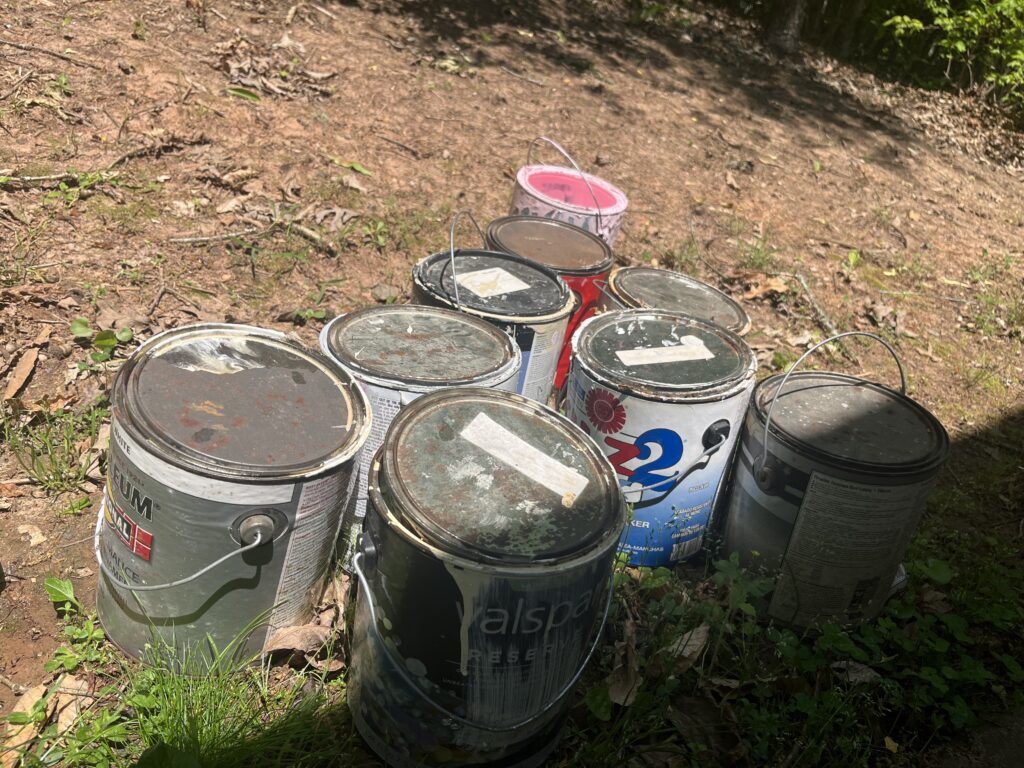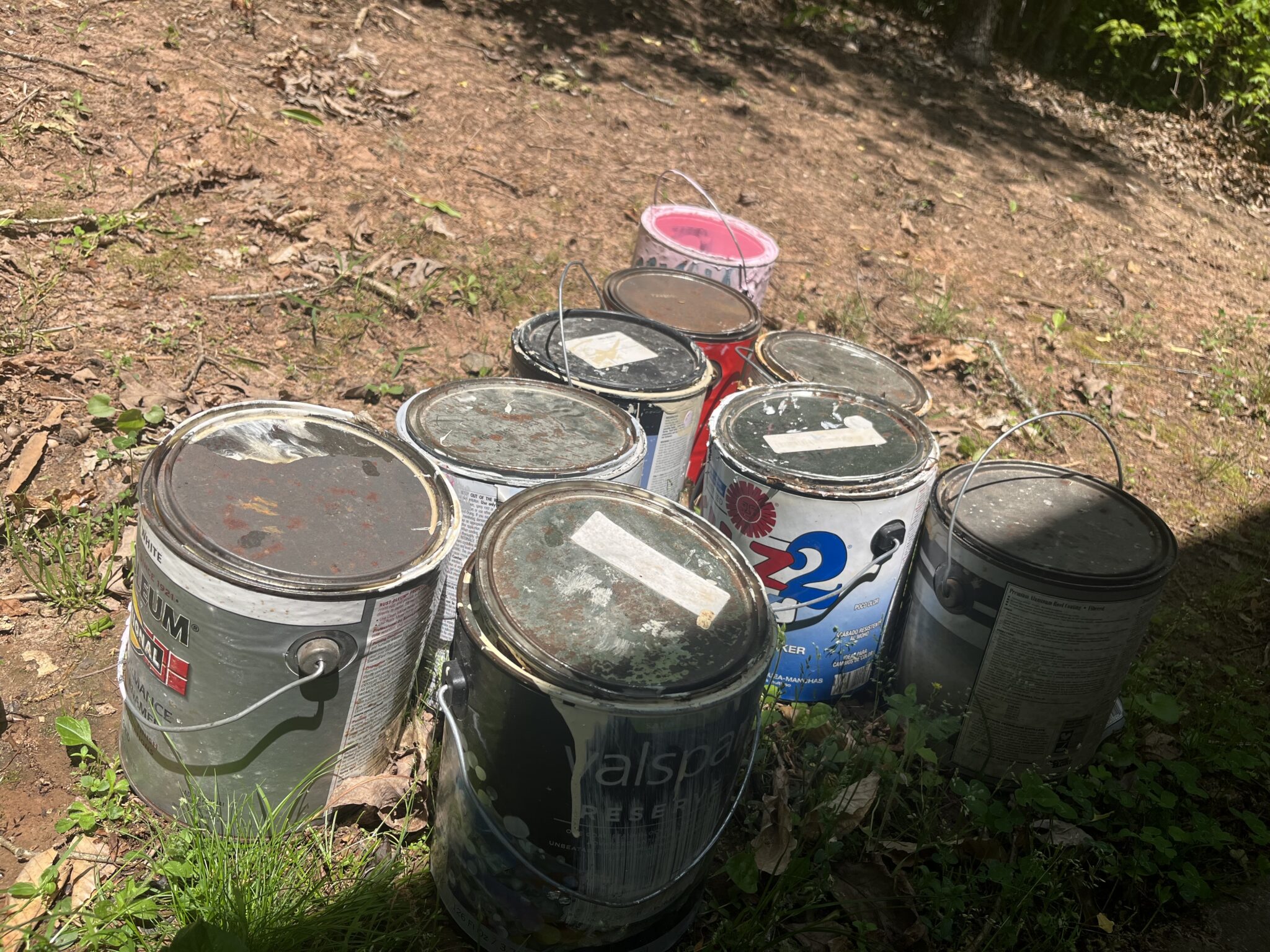CALL (828) 634-1814
Understanding the Regulations and Best Practices
When it comes to proper paint disposal in Franklin, NC, it’s essential to understand the regulations and best practices to ensure that you’re not only following the law but also protecting the environment. North Carolina has strict laws when it comes to liquid waste disposal, including paint. Liquid wastes are banned from landfills in the state, and improper disposal can lead to environmental pollution and even legal consequences. In this article, we’ll discuss the regulations and best practices for paint disposal in Franklin, NC.

Emptying and Drying Paint Cans
The first step in proper paint disposal is ensuring that the cans are empty. You may have some leftover paint in the can, which needs to be dried before disposal. Mixing cat litter, sawdust, or other bulking agents with the paint can help dry it out. Once the material is dry, you can dispose of the can in the landfill.
Liquid Waste Bans in North Carolina
As mentioned earlier, North Carolina has strict regulations regarding liquid waste disposal. The state’s Solid Waste Management Act prohibits the disposal of liquid wastes, including paint, in landfills. This law aims to reduce the risk of groundwater contamination, air pollution, and other environmental concerns. Therefore, it’s essential to properly dispose of paint, and other liquid wastes, to avoid potential legal consequences and environmental damage.
Best Practices for Paint Disposal
The best practice for all liquid wastes, including paint, is to finish using the product for its intended purpose. If you have leftover paint, consider using it for touch-ups or repurposing it for other projects. However, if you have no use for the paint, follow these best practices for proper disposal:
- Don’t pour paint down the drain or toilet. This can lead to water pollution and even damage your plumbing.
- Store paint properly in a dry, cool place to prevent spills and leaks.
- Never dispose of paint in the trash. Even if the can is empty, the remaining residue can be harmful to the environment.
- Consider donating unused paint to local organizations, such as Habitat for Humanity or local schools. These organizations can use the paint for various projects, and it prevents it from going to waste.
- Contact your local waste management facility or recycling center to learn more about their policies and procedures for paint disposal. They may have specific regulations or recommendations that you need to follow.
Benefits of Proper Paint Disposal
Proper paint disposal not only helps protect the environment but also has several other benefits. It helps reduce the risk of pollution and groundwater contamination, which can have harmful effects on wildlife and the ecosystem. Additionally, proper disposal can prevent potential legal consequences and fines, which can be costly.
By following the best practices and regulations for paint disposal in Franklin, NC, you can help protect the environment, reduce the risk of legal consequences, and ensure that the paint is properly disposed of or recycled. Remember, never pour paint down the drain or trash it in the trash can. Always follow the regulations and best practices to keep the environment and your community safe.




